Nursing Report: Interpersonal Communication Skills Reflection
VerifiedAdded on 2023/04/20
|6
|1335
|257
Report
AI Summary
This report is a reflection on the importance of interpersonal communication skills in nursing, highlighting the crucial role they play in effective patient care and the overall functioning of a healthcare setting. The report delves into three key interpersonal skills: active listening, clarity and brevity, and paraphrasing. It analyzes the student's self-assessment of their communication techniques, particularly during interviews, and identifies areas for improvement in each skill. The report emphasizes the significance of active listening, including empathy, avoiding distractions, and understanding both the subtext and context of patient communication. It also stresses the importance of clarity and brevity to convey information efficiently and avoid misinterpretations, and the use of paraphrasing to provide feedback and ensure mutual understanding. The author acknowledges shortcomings in their initial interview approach, particularly regarding the collection of comprehensive information and the development of strong therapeutic relationships. The report concludes with a commitment to improving these skills by adopting specific techniques, such as avoiding assumptions, giving patients time to express themselves, and using paraphrasing to confirm understanding. The author references relevant literature to support their findings and recommendations.
1 out of 6
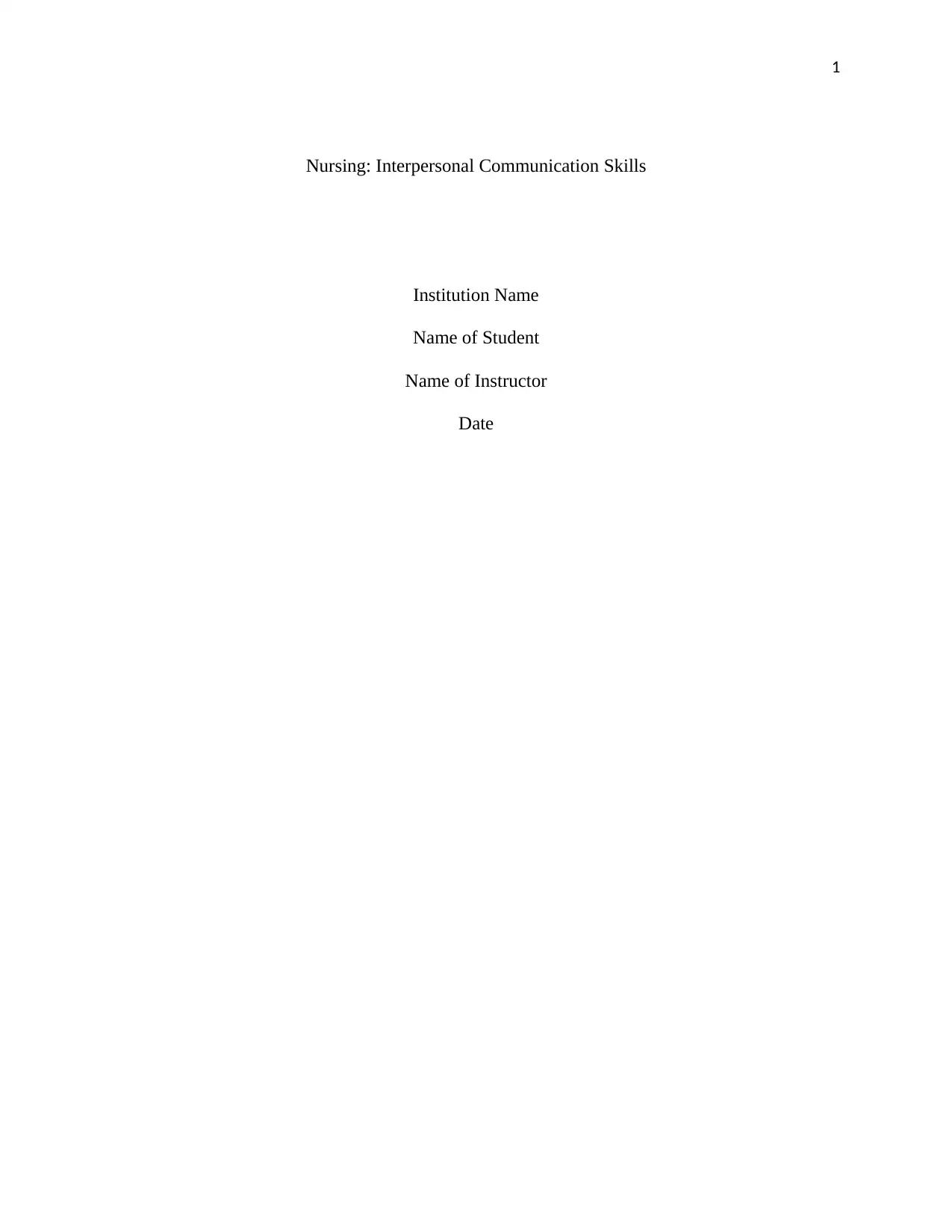
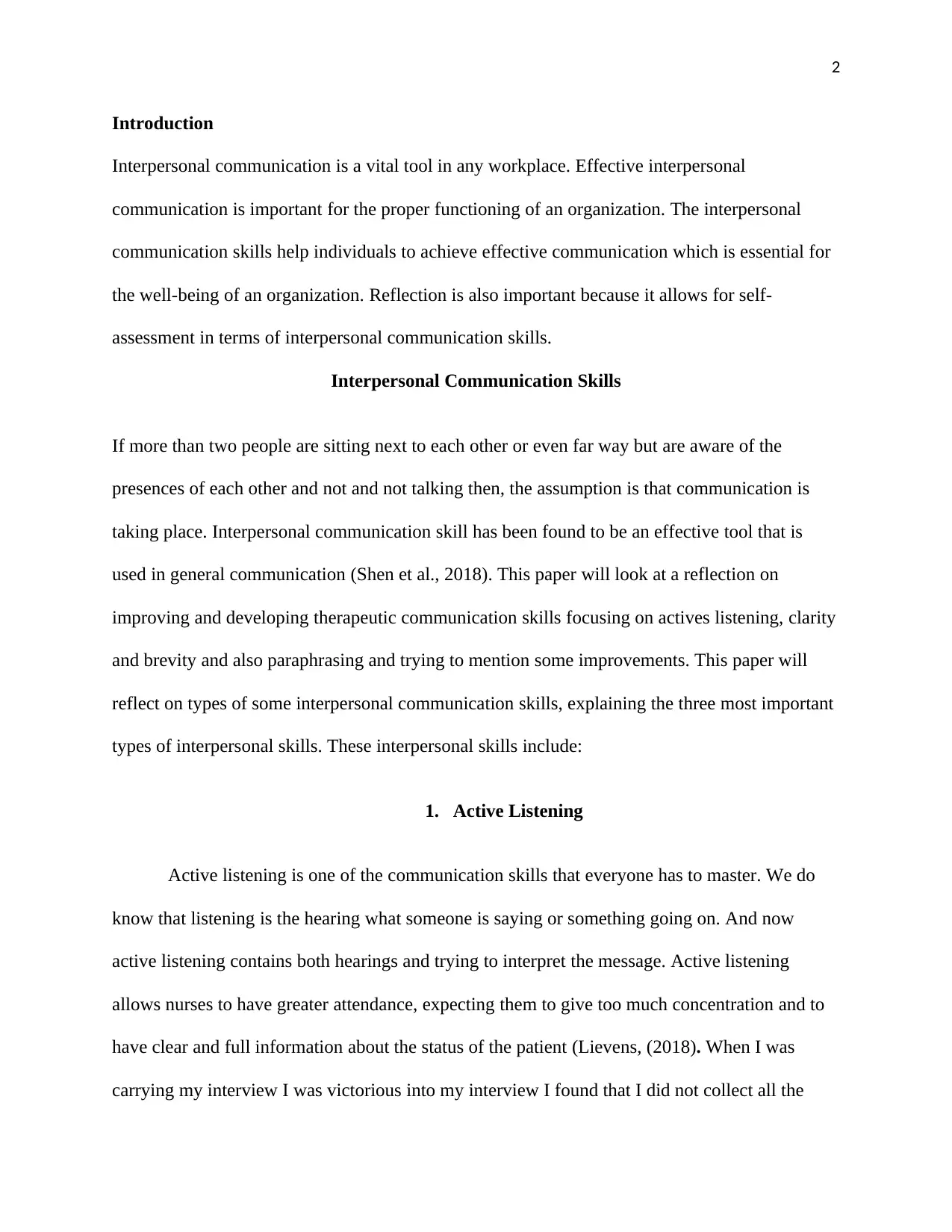
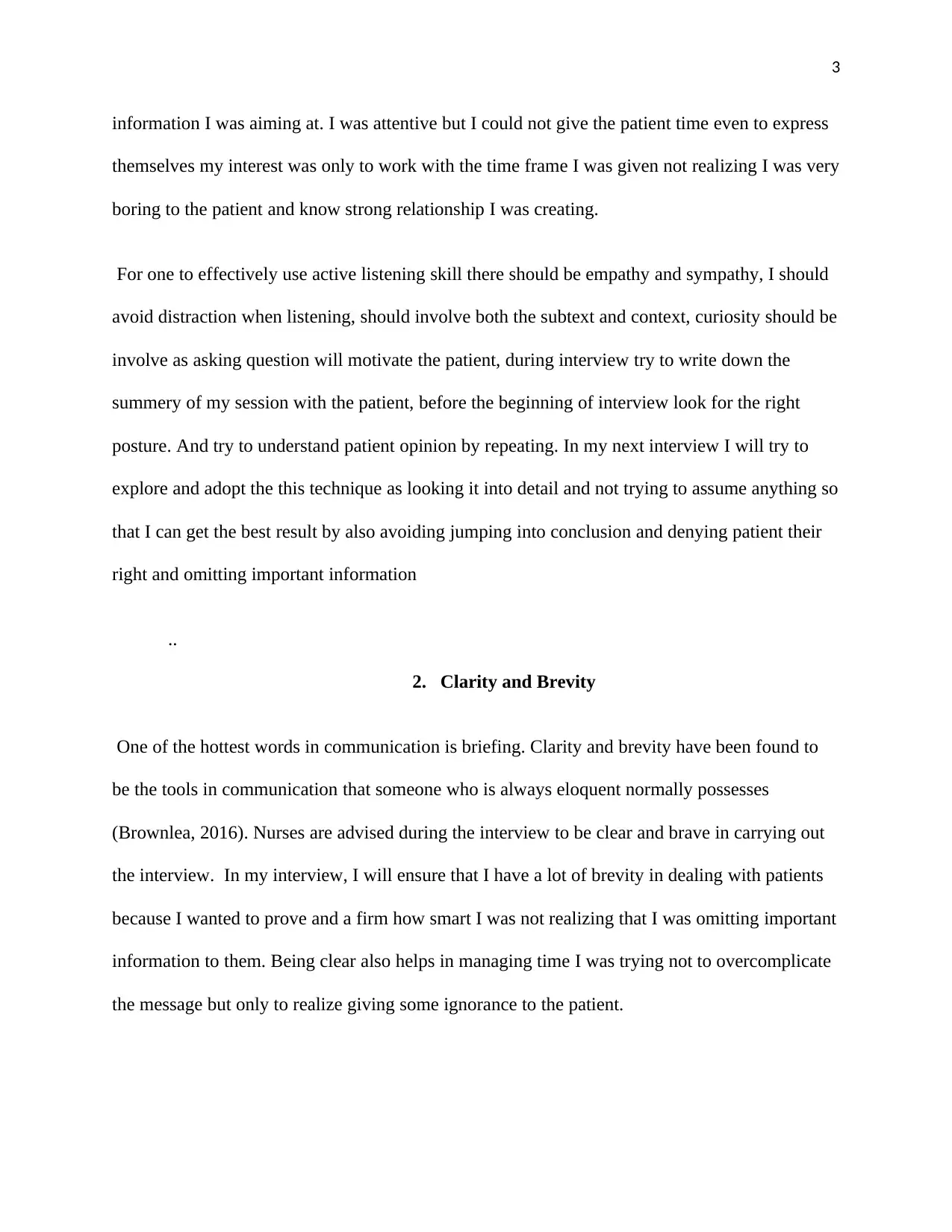

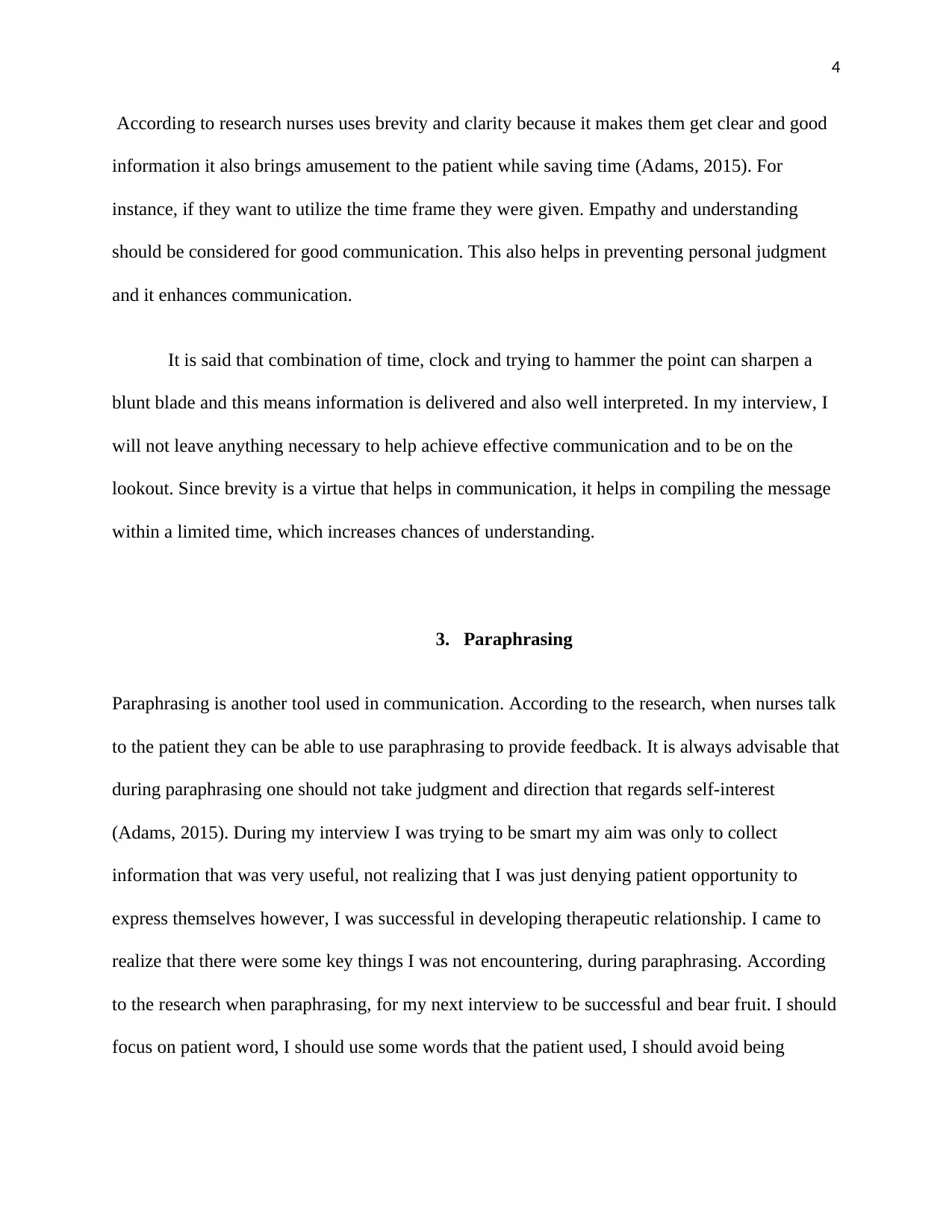
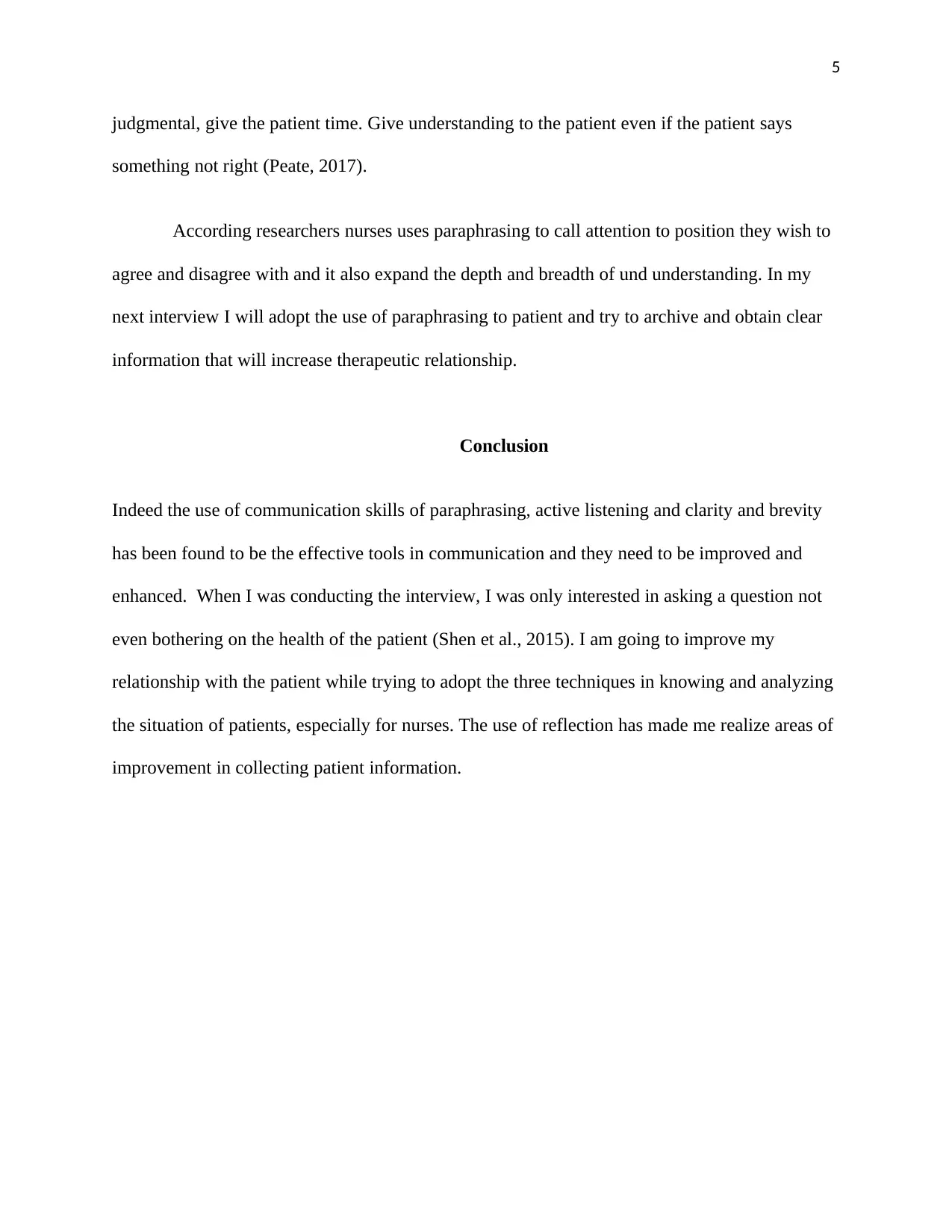
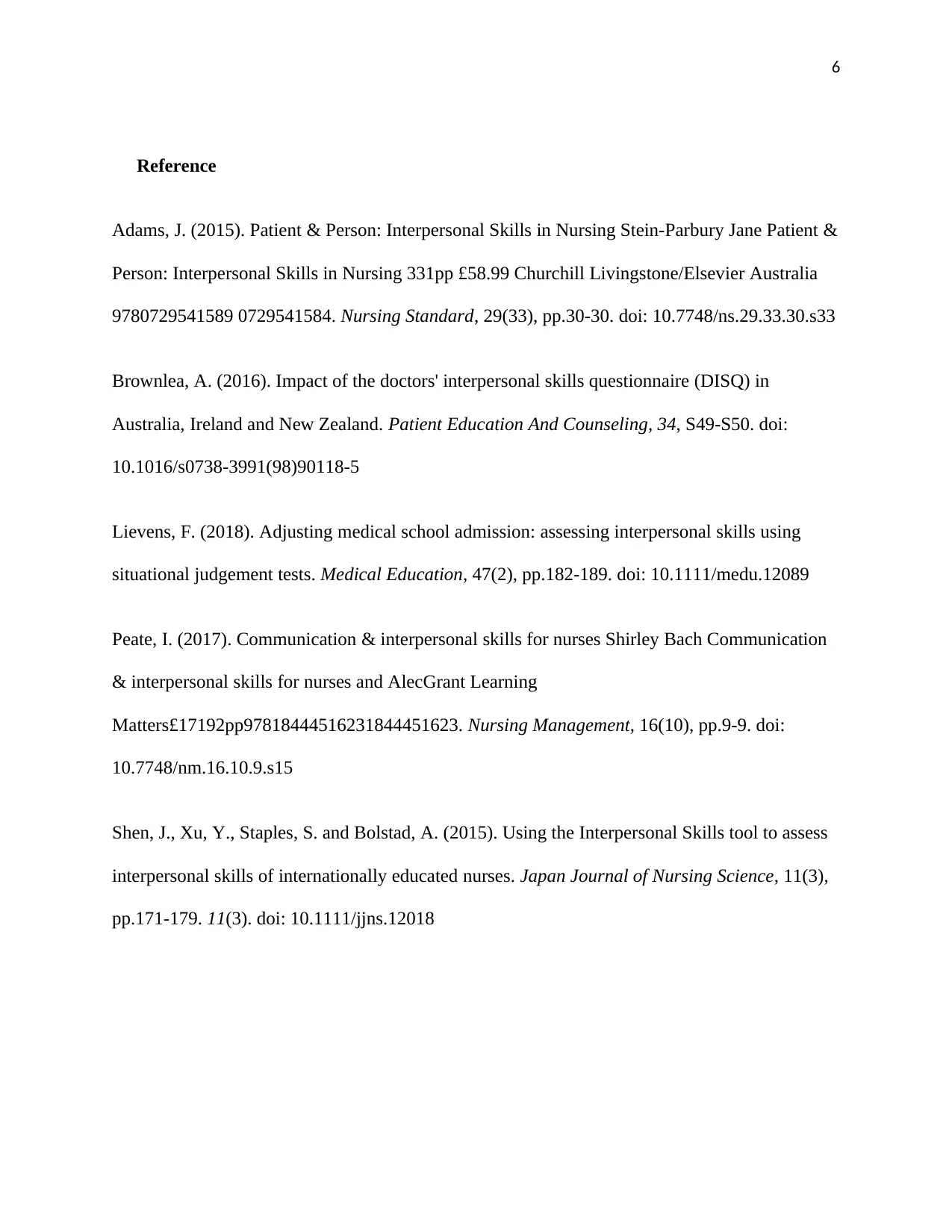






![[object Object]](/_next/static/media/star-bottom.7253800d.svg)